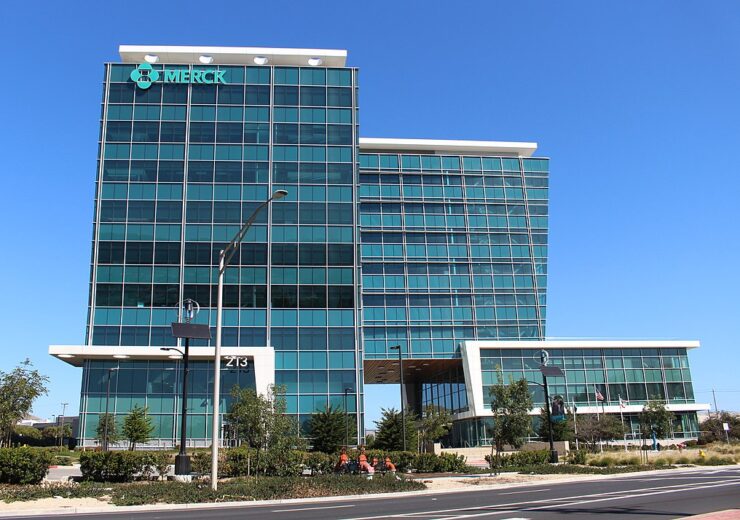With the acquisition of Seagen, Merck is enabled to widen its cancer drugs portfolio, which is currently led by its immunotherapy Keytruda, with $17.2bn in sales last year

Merck Research Laboratories in South San Francisco, California. (Credit: Coolcaesar/Wikipedia)
Merck & Co. is reportedly in advanced talks to acquire Seagen, a biotechnology company focused on cancer therapeutics, in a deal worth around $40bn or more.
The two companies are negotiating a price of more than $200 per share for Seagen, The Wall Street Journal (WSJ) reported citing sources familiar with the matter.
Also, the parties are looking to close a deal within the end of this month, prior to the announcement of Merck’s quarterly earnings, said the publication.
The acquisition of Seagen is expected to widen Merck’s cancer drugs portfolio, which is currently led by its immunotherapy Keytruda, with $17.2bn in sales last year.
In addition, the deal would help the company mitigate the projected fall in Keytruda sales after the expiry of its patent protection, which is expected at the end of this decade.
Seagen developed a class of cancer therapy that works like a guided missile, dubbed antibody-drug conjugates, to maximise the treatment benefits while minimising side effects.
Its product Adcetris (brentuximab vedotin) made $706m in sales last year.
Recently, Seagen has unveiled full results from the Phase 2 MOUNTAINEER trial of its Tukysa (tucatinib) in combination with trastuzumab.
Tukysa is an oral medicine that is a tyrosine kinase inhibitor of the HER2 protein and is a monoclonal antibody used to treat breast cancer and stomach cancer.
In the trial, the combination was well-tolerated with durable responses in patients with previously treated HER2-positive metastatic colorectal cancer (mCRC).
Seagen interim CEO and chief medical officer Roger Dansey said: “This study has shown the benefits of dual-HER2 inhibition with tucatinib and trastuzumab in patients with HER2-positive metastatic colorectal cancer, including many whose cancer had spread to the liver or lungs before joining the trial.
“We believe this chemotherapy-free combination may play an important role in addressing the unmet needs of patients with this disease.”
